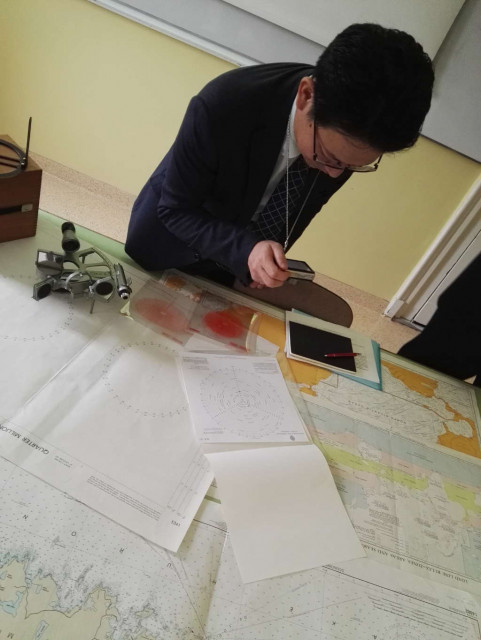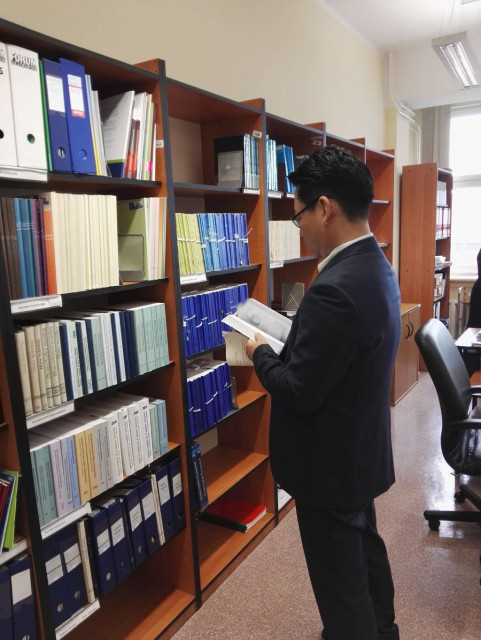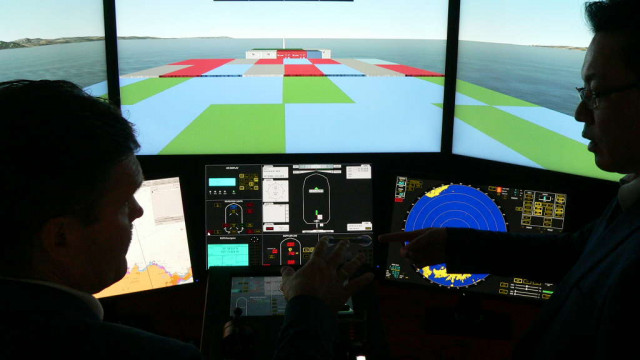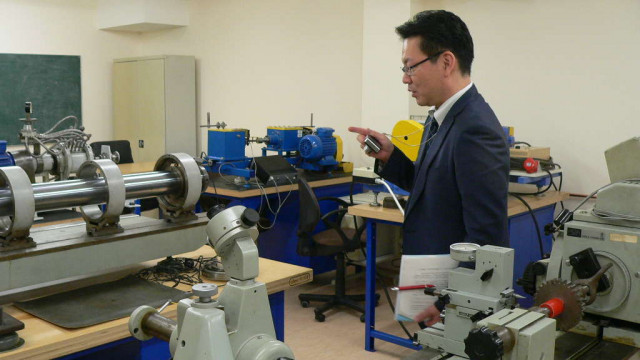An audit of the maritime education system is meant to indicate whether seamen educated in Poland will be able to work for Japanese ship operators.

To this end, the Maritime University of Szczecin has opened its doors to auditors from Japan, i.e. Mr Setsuo Nomura, the representative of Japan Maritime Centre - Japanese organisation working for the benefit of development of the maritime sector and captain Osamu Takeshita from Mitsui OSK Lines – the largest Japanese ship operator.
On Wednesday, 26th October, the guests became acquainted with the training facilities of the Faculty of Navigation and the Faculty of Marine Engineering as well as verified the compliance of our education with the international STCW Convention. The guests visited our laboratories and simulators of: engine rooms, “Green Power Engineering”, the Marine Traffic Engineering Centre and the LNG Terminal Simulation Centre. Thy also had a look at laboratories of the Faculty of Marine Engineering in the building in Willowa Street. In the Institute of Marine Navigation, the auditors devoted a lot of time to the “classic” facilities, i.e. the collection of traditional paper maps. They also analysed the resources of the MUS library - both the traditional book collection as well as the virtual resources in the multimedia reading room.
The guests from Japan also had an opportunity to visit the Deputy Governor of the West Pomerania Province, Marek Subocz, with whom they discussed the plans for development of the region. Mr Nomura and Mr Takeshita were enchanted with the architecture in Wały Chrobrego Street - the building of the Maritime University, the National Museum and the West Pomerania Province Office.
During their stay in Poland, the delegates also had a series of meetings in the Ministry of Maritime Economy and Inland Navigation in Warsaw and the Maritime Authority in Gdynia. They also audited the Gdynia Maritime University.
The results of their work on the Polish system of maritime education will be known in a few months.





